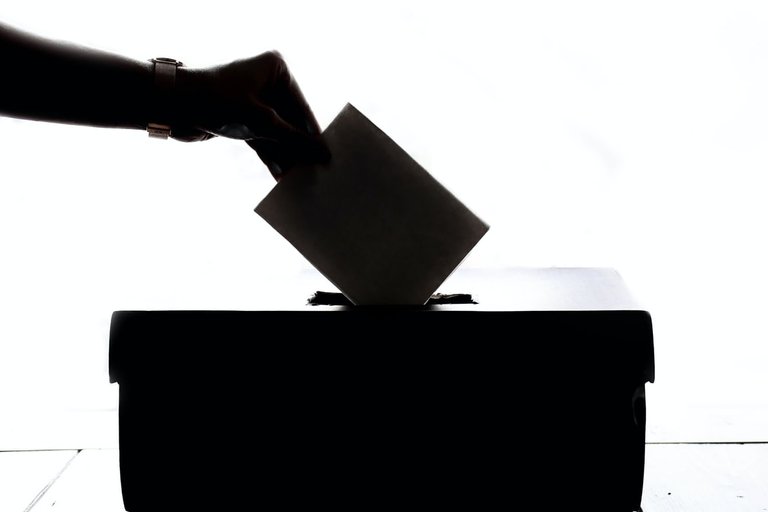The Problem
The U.S. is in the middle of a voting crisis. Much of the public has lost faith in the way the current system is run, and this has somehow happened regardless of political party.
For example, on the Left, people are worried about voter ID laws, wait times, and locations of the polls causing voter suppression. On the Right, people are worried about voter fraud at the individual level and at administrative level. They also worry about misreporting and faulty counting.
There are certainly other concerns on all sides, like transparency about counting and how the electronic machines actually work (and who owns them, and so on). I won't list every issue here, but it's clear many have lost faith in the system.
There are two main reasons for this:
- Centralization
- Secrecy
Each polling location is run by people. These people have biases and are subject to corruption. No matter how trusting you are, one must admit that there is at least the potential for issues due to putting so much importance on a few individuals.
Votes are counted in secret. This lack of transparency is another point of fear for many. We can't see the votes being counted. We know there have been mistakes in the past because recounts happen with different numbers.
The secrecy is pretty important, though, because we must be free to vote for whomever we want without fear of political backlash. Elections aren't free and fair without some level of anonymity.
The Brilliance of Blockchain
Before Satoshi Nakamoto's groundbreaking paper 13 years ago, it was unthinkable that voting could be done in any other way.
Think about it. How can you have anonymity, decentralization, and somehow get a higher level of trust and confidence that everything was being counted properly and fairly?
It's impossible! Without centralization, who would count the votes? Decentralizing traditionally means more room for fraud and error because no trusted source is vetting the process.
How could people be sure their vote was counted correctly while remaining anonymous? This also seemed impossible.
But blockchain works because it solves the Byzantine General's Problem, which essentially is another way to frame these tradeoffs.
It allows people to anonymously record something to the blockchain and be able to double check it was done correctly in a completely decentralized way (you probably already knew this so we won't describe how it works, which would be a very long tangent).
The Solution
Blockchain technology provides the solution.
The blockchain is publicly visible to all, so everyone in the U.S. can watch the entire voting process happen. You'd be able to check that your vote was actually cast for the person you voted for.
No humans are involved in the counting of the votes, so we know that no one is switching votes or recording incorrect numbers.
Because blockchain voting will be done electronically, there won't be long wait times or voter ID issues or problems getting off work or driving long distances.
This definitely solves the trust in counting issues, but it's not perfect, because getting everyone a single wallet address (or anonymous signature) to vote from just shifts some of the problems to a different part of the process.
Implementation Issues
I can imagine a ton of different ways to do this: each U.S. citizen has a social security number, so that could be run through a hash to give you your address. Since this can't be reversed, you'd be able to check your own vote but couldn't work out other people's.
Another possibility is to still have polling locations, and it is still up to the polling volunteers to check each person votes once, and then you get a random address that you could write down and take home that you vote from.
These both have obvious drawbacks, and I don't claim to have a perfect implementation. Hopefully some really smart people think about this a lot over the next decade, because if we could manage to come up with a good implementation, it would fix the current U.S. voting crisis.
We'd get trust back into the system by making it more transparent and less subject to corruption.
Final Thoughts
When the general public thinks about blockchain, they think about Bitcoin, cryptocurrencies, NFTs, and so on. Many think these are all useless scams or Ponzi schemes.
But blockchain is so much more. It can be used to solve really important problems like trust in voting, and I think this is the future of voting. It's just going to take some time to convince people and find the right implementation that minimizes drawbacks.

It would be nice if it can be applied in any election in the world not just in America. But the problem is that not only it might need a lot of resources to make the chain and all its infrastructure needed, but the real question is will those politicians approve those kinds of things, which might be not in good favour for them?